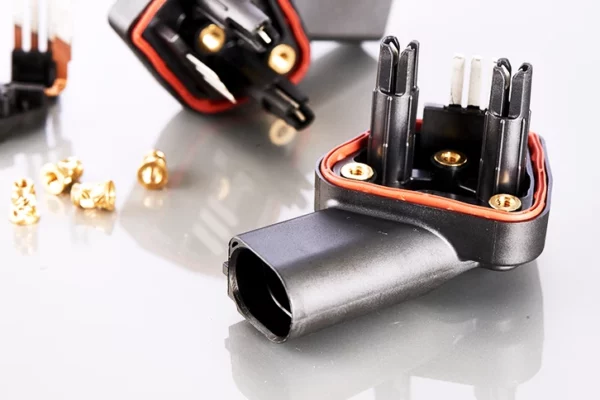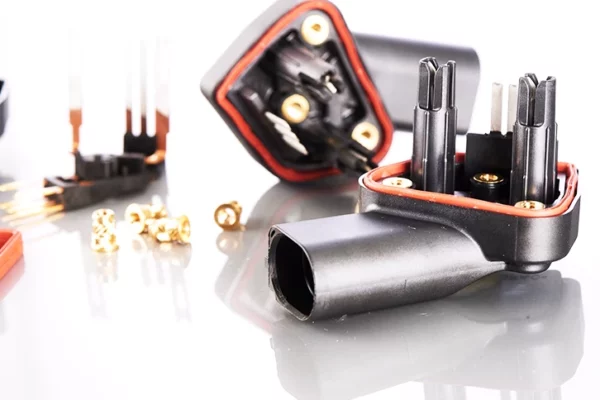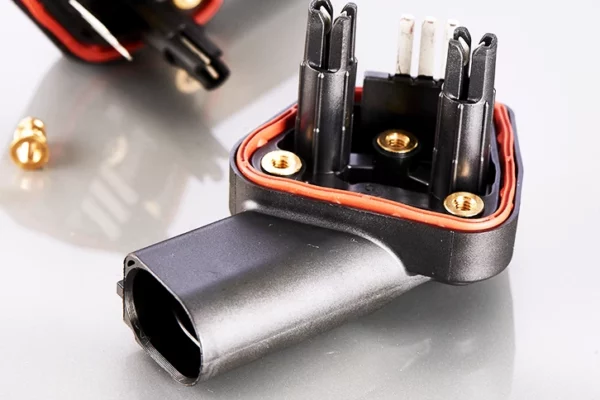Requirements
For this connector housing we were commissioned by a well-known automotive supplier with the development, manufacture and assembly of a complex hybrid assembly that is used in a vehicle’s engine compartment. Due to the often severe effects, such as temperature, splash water and other hydraulic fluids, the customer’s requirements for the connector’s insulation and sealing were extremely high. The focus for this product was therefore on the high-precision processing of the plug connections as well as the integrated assembly of a seal to achieve the best possible sealing and insulation in defined areas. Matching multiple complex stamped metal parts and selective surfaces with the injection mold was also an exceptional challenge.
Process
The entire series production of the automotive connector is carried out in-house in one integrated process. During the development stage, we were already able to work out an economical concept for inserting pre-molded parts and threaded bushings into the tool while at the same time optimizing material consumption and selective electroplating. Fine-tuning the inserts and the tool was also crucial in order to map the tight tolerances in the subsequent series run.
The process design is such that the various work steps are for the most part linked or carried out semi-automatically. First we stamp the different sheet metal parts and refine them with a special selective gold and tin plating. A pre-molded part is then created by overmolding the lead frame. The stops on the lead frame are separated in the pre-molded part using a special separating tool to keep the webs apart from the electrical contact. In the next step, the required threaded bushings and the pre-molded part are fed to the injection mold using a modern turntable machine. Since two separate lower parts are available here, manual assembly is carried out parallel to injection molding, thus achieving a shorter and constant cycle time.
To achieve the technical requirements for the assembly, a semi-crystalline PPS (GF40) was chosen as the housing material. This material has exceptionally high rigidity, low creep and high continuous service temperatures. The threaded bushings are made of brass, the bending parts of bronze.
All assembly processes are integrated semi-automatically, including the application of a seal. A 100% high voltage test is performed as a final test. Tests are carried out during series production along the entire value chain using the latest measuring technology and complete documentation until the finished connectors are finally packed in special ESD trays and handed over to our logistics department.
Result
Our customer benefits from a designated contact person for all internal and external processes. Thanks to the second ejector side in the tool and the shorter cycle times for the injection molded part, there are significant cost savings for the part price. The required insulation properties are ensured by a 100% high voltage test.
Convinced?
Start project now
Call us or write to us. Let’s get your idea into series production together.



